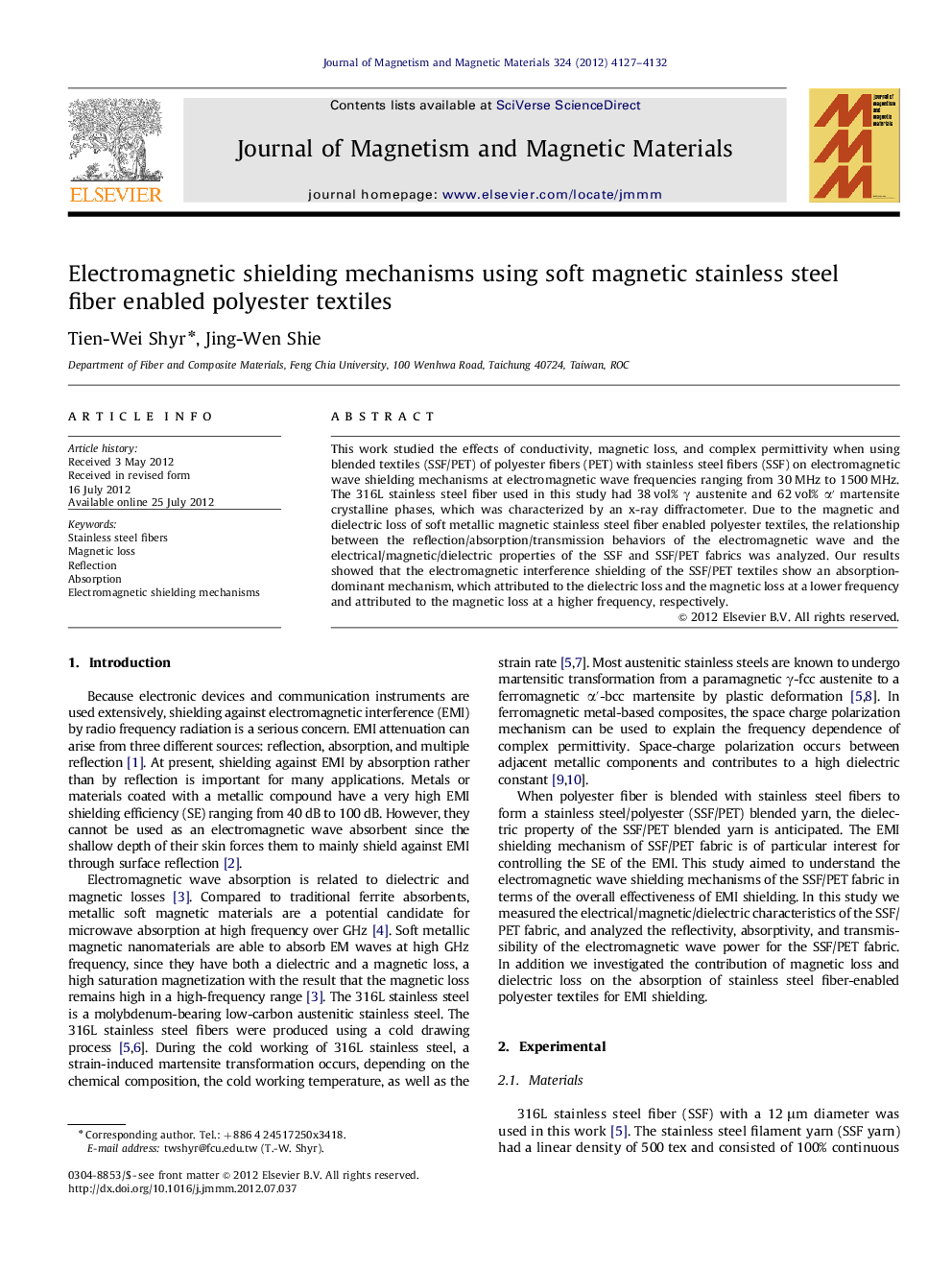| کد مقاله | کد نشریه | سال انتشار | مقاله انگلیسی | نسخه تمام متن |
|---|---|---|---|---|
| 1800592 | 1024539 | 2012 | 6 صفحه PDF | دانلود رایگان |

This work studied the effects of conductivity, magnetic loss, and complex permittivity when using blended textiles (SSF/PET) of polyester fibers (PET) with stainless steel fibers (SSF) on electromagnetic wave shielding mechanisms at electromagnetic wave frequencies ranging from 30 MHz to 1500 MHz. The 316L stainless steel fiber used in this study had 38 vol% γ austenite and 62 vol% α′ martensite crystalline phases, which was characterized by an x-ray diffractometer. Due to the magnetic and dielectric loss of soft metallic magnetic stainless steel fiber enabled polyester textiles, the relationship between the reflection/absorption/transmission behaviors of the electromagnetic wave and the electrical/magnetic/dielectric properties of the SSF and SSF/PET fabrics was analyzed. Our results showed that the electromagnetic interference shielding of the SSF/PET textiles show an absorption-dominant mechanism, which attributed to the dielectric loss and the magnetic loss at a lower frequency and attributed to the magnetic loss at a higher frequency, respectively.
► 316L stainless steel wire was drawn to fiber with a 12 μm diameter.
► The stainless steel fiber (SSF) had 62 vol% soft ferromagnetic phases.
► Two kinds of fabrics were woven by SSF and SSF/PET yarns with varied SSF ratio.
► Absorptivity of the soft ferromagnetic SSF dominated the EMI SE of the fabrics.
► The absorption mechanism was mainly attributed to the magnetic loss of SSF.
Journal: Journal of Magnetism and Magnetic Materials - Volume 324, Issue 23, November 2012, Pages 4127–4132